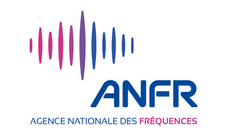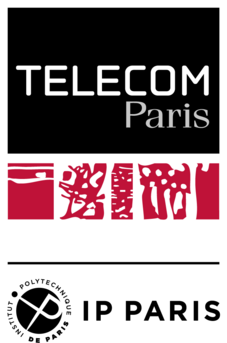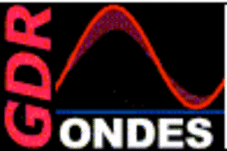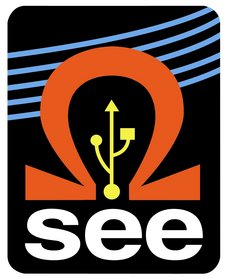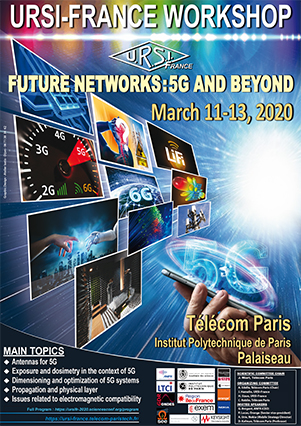
URSI-FRANCE 2020 WORKSHOP
Future Networks:
5G and beyond
March 11-13, 2020
Telecom Paris, Institut Polytechnique de Paris, Palaiseau
Workshop
The URSI-France 2020 workshop, organized under the auspices of the French Academy of Sciences, was focused on "Future Networks: 5G and beyond". The workshop was held on the campus of Telecom Paris, Institut Polytechnique de Paris, in Palaiseau (France), from March 11 to March 13, 2020.
Given the commercial launch of the Fifth Generation of Mobile Radio Networks (5G) in 2020, URSI-France has dedicated its annual workshop to such networks and to their future developments, as they are called to transform society in-depth through very innovative uses. With 5G, wireless networks will have been designed for the first time from the outset, with the aim to make possible person-person, personmachine and machine—to-machine communications, giving access to a multitude of services relying on data. The 5G-specific technological developments, the use of millimeter waves, the foreseeable developments that will require extending 5G with a follow-up generation, will continue to stimulate important efforts and new lines of research for both academia and industry. However, as each new generation introduces more complexity and service enrichment, it also raises concerns and fears stemming from the increased number of electromagnetic emission sources, the associated exposure and the energy consumption. It is therefore important to address these various issues in an altogether unbiased vision, at the core of the scientific approach.
In this context, the workshop will be organized around oral sessions and posters. Most sessions will be introduced by invited speakers, presenting the state of the art and / or recent developments, followed by papers that have been selected by the Scientific Committee.
Main topics
- Antenna design and measurements
- New techniques related to antenna design and measurements in a wide spectrum of frequencies
- Complex and active antennas (Massive-MIMO, reconfigurable surfaces...)
- New approaches for antenna modeling and measurements (reverse engineering, statistics, optimization, measurement-simulation hybridization)
- Propagation and physical layer
- Propagation channel modeling joint coding, spatial modulations, Non-Orthogonal Multiple Access…
- Dynamic frequency management, Spectrum utilization beyond 100 GHz
- Physical layer contributions to the security and privacy of communications
- Geolocation, Positioning techniques and location-based precoding algorithms
- « Over The Air » measurements
- New approaches for the design, dimensioning, optimization and management of wireless networks
- Resource allocation (allocation strategy, optimization...)
- Propagation of uncertainties, surrogate models
- Artificial Intelligence and Learning Methods (Blind channel estimation, Map of exposure, dimension reduction , ...)
- Optimized strategy (multi objectives,..)
- Photonics
- Li-Fi
- Architectures of optical access networks
- Photonic components & optical-RF interfaces
- Electromagnetic environment, exposure assessment and energy efficiency
- Electromagnetic compatibility of systems, signal integrity, interferences
- Characterization of electromagnetic protections (materials, systems)
- Characterization of EMF exposure (compliance, actual exposure, uncertainty management...)
- Green communications, energy harvesting
Organization
The 2020 URSI-France workshop was taked place on the TELECOM PARIS campus (https://www.telecom-paris.fr) in Palaiseau, from Wednesday, March 11 to Friday, March 13, 2020. It included on Thursday, March 12, the URSI-France General Assembly.
Committees
Scientific Committee Chair: Joe Wiart, Telecom Paris, France
- Joseph Achkar (Observatoire Paris)
- Jean-Benoit Agnani (ANFR)
- Tahsin Akalin (Université De Lille)
- Francesco Andriulli (Politecnico Di Torino)
- Xavier Begaud (Telecom Paris)
- Sébastien Célestin (CNRS Orléans)
- Emmanuelle Conil (ANFR)
- Yoann Corre (Siradel)
- Raffaele D’Errico (CEA-LETI)
- Philippe De Doncker (Université Libre De Bruxelles)
- Mérouane Debbah (Huawei)
- Patrick Galopeau (LATMOS, Université Versailles Saint-Quentin)
- Azeddine Gati (Orange)
- Christophe Grangeat (Nokia)
- Frédéric Grillot (Telecom Paris)
- Nicolas Gross (MVG)
- Florian Kaltenberger (Eurecom)
- Marco Klingler (MPSA)
- Jean-Marc Laheurte (Université Paris Est Marne-La-Vallée)
- Sébastien Lalléchère (Université De Clermont Auvergne)
- Quentin Lampin (Orange)
- Christophe Le Martret (Thales)
- Martine Liénard (Université De Lille)
- Yves Louët (CentraleSupélec)
- Lluis Mir (Institut Gustave Roussy)
- Claude Oestges (Université De Louvain)
- Allal Ouberehil (TDF)
- Patrice Pajusco (IMT-Atlantique)
- Christian Person (IMT-Atlantique)
- Dinh-thuy Phan Huy (Orange)
- Philippe Pouliguen (DGA)
- Yannis Pousset (Université De Poitiers)
- Christophe Roblin (Telecom Paris)
- Julien Sarrazin (Sorbonne Université)
- Alain Sibille (Telecom Paris)
- Tullio Tanzi (Telecom Paris)
- Smail Tedjini (INP Grenoble)
- Yann Toutain (MVG)
- Wim Van Driel (Observatoire de Paris)
- Maxim Zhadobov (Université De Rennes)
Organizing Committee Chair:Alain Sibille, Telecom Paris
- Joël Hamelin (URSI-France)
- Hervé Sizun (URSI-France)
- Christophe Roblin (Telecom Paris)
Publication
The texts of the communications have been grouped together in proceedings, an electronic version of which are available on this site.
A selection of papers will be proposed for publication, either in a thematic issue of the Comptes rendus Physique de l’Académie des sciences or in the Revue de l’électricité et de l’électronique (REE).
SPONSORS


